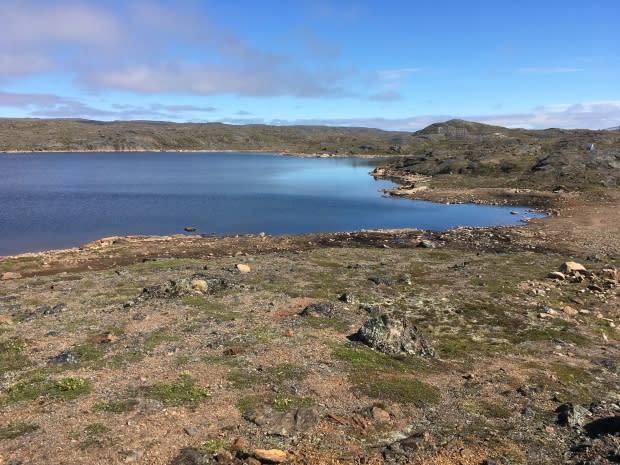Iqaluit can pump water from Apex River for 7 years: review board
The City of Iqaluit is allowed to continue pumping water from the Apex River for the next seven years, according to a decision by the Nunavut Impact Review Board.
Last summer, the city had to find an emergency solution when Lake Geraldine, the reservoir that supplies the city with drinking water, started to run low.
Now, the city wants to extract as much as 500 million litres of water from the Apex River to Lake Geraldine between the months of July and October every year until 2026.
In its decision Thursday, the review board outlined 23 terms and conditions the city will need to follow. That includes making sure the hose used to pump the water has a screen to protect fish, and that the pump used to extract the water can be adjusted depending on the daily flow of the river.
The guidelines also set the rate in which water can be extracted in order to not hurt the ecosystem.
A hydrologist who's been studying fresh water in and around Iqaluit since 2005 says that's important.
"You will very likely have a large effect on the river if you exceed that threshold," said Andrew Medeiros, an assistant professor at Dalhousie University who studies the Apex River.
The city was allowed to extract water from the Apex River at a greater rate last summer because of the emergency situation.
Regulations will be hard to follow: hydrologist
Medeiros says there is an 80 per cent likelihood that the city will need to continue a high rate of pumping in order to fill up Lake Geraldine.
Medeiros brought his findings, based on 10 years worth of data, to the attention of the review board.
According to Medeiros, the city will only be able to extract about 167 million litres of water from the river this summer if it stays within the federal government's low-impact guidelines. But the city's proposal is to extract nearly three times that amount — up 500 million litres.
"If it is a year in which there is not a lot of summer precipitation and an extended summer period, then they are going to have a very serious problem," said Mederios.

Amy Elgersma, the chief administrative officer for the city of Iqaluit, said they are confident the plan will work while meeting regulations. If it does need to pump water at a greater rate, it will need permission from the Nunavut Water Board and the Department of Fisheries and Oceans.
The city is looking at long-term solutions to the water problem, such as using the Sylvia Grinnell River or Unnamed Lake.
The review board's decision has been passed on for review to Dominic Leblanc, minister of Intergovernmental and Northern Affairs. He will either accept, reject or make modifications to the decision.

